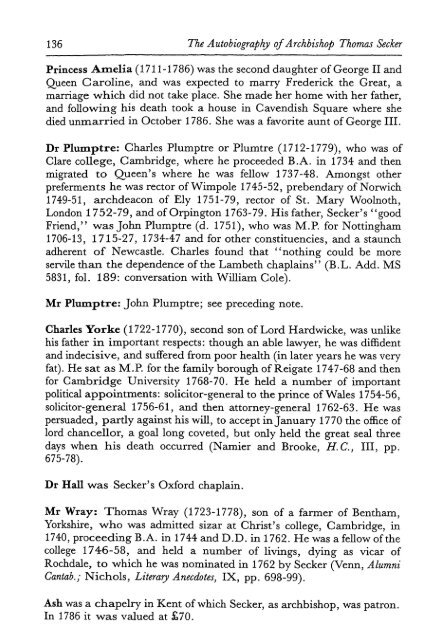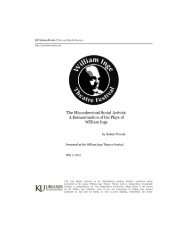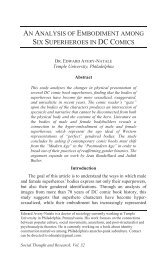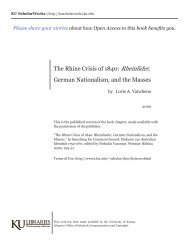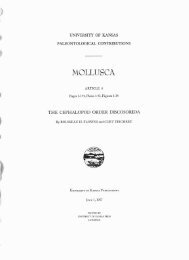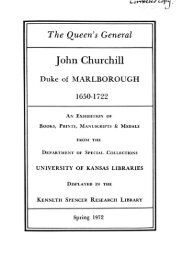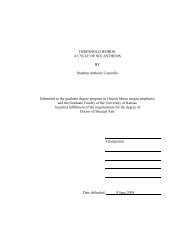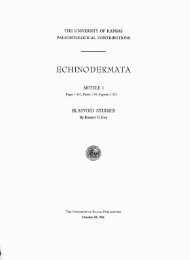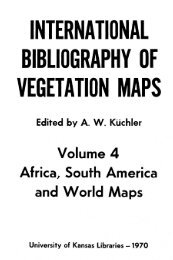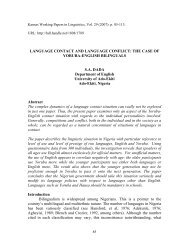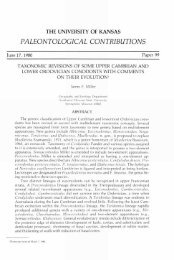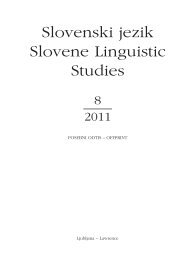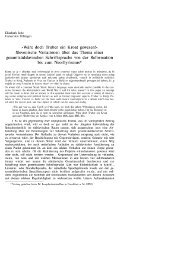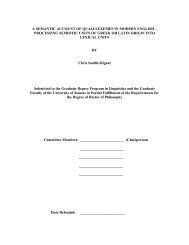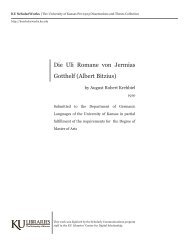Archbishop of Canterbury - KU ScholarWorks - The University of ...
Archbishop of Canterbury - KU ScholarWorks - The University of ...
Archbishop of Canterbury - KU ScholarWorks - The University of ...
Create successful ePaper yourself
Turn your PDF publications into a flip-book with our unique Google optimized e-Paper software.
136<br />
<strong>The</strong> Autobiography <strong>of</strong> <strong>Archbishop</strong> Thomas Seeker<br />
Princess Amelia (1711-1786) was the second daughter <strong>of</strong> George II and<br />
Queen Caroline, and was expected to marry Frederick the Great, a<br />
marriage which did not take place. She made her home with her father,<br />
and following his death took a house in Cavendish Square where she<br />
died unmarried in October 1786. She was a favorite aunt <strong>of</strong> George III.<br />
Dr Plumptre: Charles Plumptre or Plumtre (1712-1779), who was <strong>of</strong><br />
Clare college, Cambridge, where he proceeded B.A. in 1734 and then<br />
migrated to Queen's where he was fellow 1737-48. Amongst other<br />
preferments he was rector <strong>of</strong> Wimpole 1745-52, prebendary <strong>of</strong> Norwich<br />
1749-51, archdeacon <strong>of</strong> Ely 1751-79, rector <strong>of</strong> St. Mary Woolnoth,<br />
London 1752-79, and <strong>of</strong> Orpington 1763-79. His father, Seeker's "good<br />
Friend," was John Plumptre (d. 1751), who was M.P. for Nottingham<br />
1706-13, 1715-27, 1734-47 and for other constituencies, and a staunch<br />
adherent <strong>of</strong> Newcastle. Charles found that "nothing could be more<br />
servile than the dependence <strong>of</strong> the Lambeth chaplains" (B.L. Add. MS<br />
5831, fol. 189: conversation with William Cole).<br />
Mr Plumptre: John Plumptre; see preceding note.<br />
Charles Yorke (1722-1770), second son <strong>of</strong> Lord Hardwicke, was unlike<br />
his father in important respects: though an able lawyer, he was diffident<br />
and indecisive, and suffered from poor health (in later years he was very<br />
fat). He sat as M.P. for the family borough <strong>of</strong> Reigate 1747-68 and then<br />
for Cambridge <strong>University</strong> 1768-70. He held a number <strong>of</strong> important<br />
political appointments: solicitor-general to the prince <strong>of</strong> Wales 1754-56,<br />
solicitor-general 1756-61, and then attorney-general 1762-63. He was<br />
persuaded, partly against his will, to accept in January 1770 the <strong>of</strong>fice <strong>of</strong><br />
lord chancellor, a goal long coveted, but only held the great seal three<br />
days when his death occurred (Namier and Brooke, H.C, III, pp.<br />
675-78).<br />
Dr Hall was Seeker's Oxford chaplain.<br />
Mr Wray: Thomas Wray (1723-1778), son <strong>of</strong> a farmer <strong>of</strong> Bentham,<br />
Yorkshire, who was admitted sizar at Christ's college, Cambridge, in<br />
1740, proceeding B.A. in 1744 and D.D. in 1762. He was a fellow <strong>of</strong> the<br />
college 1746-58, and held a number <strong>of</strong> livings, dying as vicar <strong>of</strong><br />
Rochdale, to which he was nominated in 1762 by Seeker (Venn, Alumni<br />
Cantab.; Nichols, Literary Anecdotes, IX, pp. 698-99).<br />
Ash was a chapelry in Kent <strong>of</strong> which Seeker, as archbishop, was patron.<br />
In 1786 it was valued at £70.


